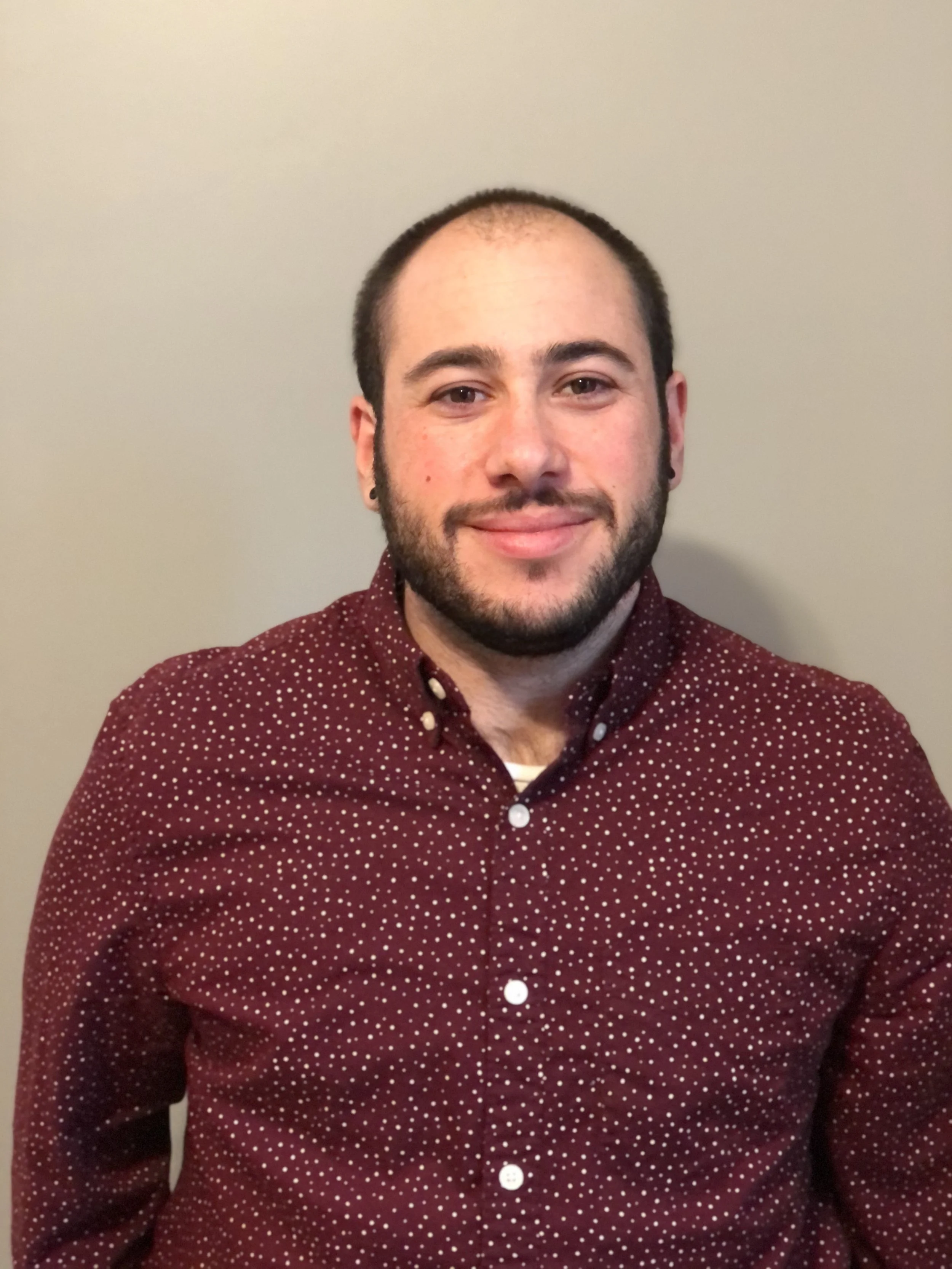Hi, I’m Asher.
I believe we all have subjective experiences, and I know that the ways I have experienced life and move through the world has shaped my perspectives and how I work as a therapist. I aim to offer an open, curious, and humble approach to knowing and engaging with you and the ways your multi-faceted identities and experiences impact your understanding of yourself, your relationship to others, and our larger social systems. Ultimately, I believe you are the expert on your experience, and my hope is that we can establish the necessary trust in order to engage in meaningful collaboration together.
Without attempting to cover everything (if that were even possible!) here are notable aspects of my identities and experiences:
I am queer, I am trans, I am Jewish (Ashkanazi) and white, and I am a step-parent. I have experience that ranges from working in the service industry, in medical institutions, and in the non-profit sector. I have also had my own experience as a client working with a therapist. I grew up in Wisconsin, and moved to Massachusetts in 2010. And, here I’ve been for the past 15+ years!
Professionally, I have bachelor’s degrees in Political Science and Women/Gender Studies from the University of Wisconsin-Madison. I have a master’s degree in social work (MSW) from Simmons College (now University). I’ve been independently licensed in Massachusetts (LICSW) since 2017 and have experience working as a social worker in medical settings specializing in sexual health, infectious disease and transgender medicine, in addition to my current full-time outpatient therapy practice. I also have experience supervising social work interns and pre-licensed clinicians.
I aim to show up as authentically as possible, which also means taking note of my boundaries and conveying with transparency what I can provide, along with my expectations as we consider working together. In working together, my hope is that you will feel held and supported in a process of reflection, healing and growth.
I have listed my areas of specialization and preferred therapy modalities below - that said, I believe the therapy relationship with each client informs use of different therapy models, styles, and tools, and I will draw from a mix of modalities on a client-to-client basis.
Specializing in
-
I have lived experience with LGBQ/T and Jewish identity work, and really enjoy working with others in these communities.
I also have experience supporting clients with various aspects of identity exploration and development related to neurodivergence, racial, class, disability, and polyamorous identities.
-
I work individually with clients, sometimes in conjunction with those also in relational/couple’s therapy, largely drawing from attachment and nervous system frameworks to help identify and shift relational patterns of miscommunication, disconnection, and conflict.
I have experience working with clients across a spectrum of relationship structures, including non monogamy and polyamory.
-
I really enjoy working with those who are seeking support related to parenting roles and dynamics.
I also have experience working with those navigating blended families and the different relational dynamics involved.
-
Trauma, whether a one-time event or ongoing, is not just about the events themselves, but is also about the legacy of the event on our understanding of ourselves, relationships with others, and physiological, psychological, and emotional concepts and responses to danger/safety in the present.
Other types of stuckness often include depression or anxiety and their pervasive symptoms feeling overwhelming.
I largely draw from Polyvagal Theory, Attachment Frameworks, and EMDR for this type of trauma and anxiety/depression symptom resolution work.
Therapy Modalities
-
Polyvagal Theory
An integrated nervous system-informed approach to understanding our threat/safety responses and the ways these patterns of responses have impacted our capacity to connect to ourselves and to others.
-
EMDR
Eye Movement Desensitization and Reprocessing
A form of therapy used to treat trauma-related stuckness and conditions. It involves bi-lateral stimulation helping the brain to first desensitize (exposure) to memories and then to reprocess them to reduce their emotional impact in the present.
-
Attachment Theory
A focus on the ways our social, emotional, and physiological development and important bonds with others have formed and have developed into patterns that presently impact the ways we engage in relationships.
